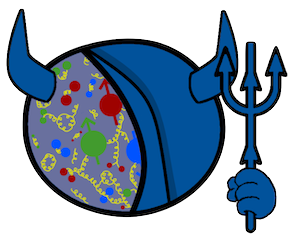Speaker
Description
Standard relativistic hydrodynamics, through the years, has been extremely successful in describing the properties of the strongly-interacting matter produced in heavy-ion collision experiments. Recently, there has been a significant theoretical advancement in this field to explain a new phenomenon of spin polarization of hadrons emitted in these processes. Although current models have successfully explained some of the experimental data based on the coupling between spin polarization and the vorticity of the medium, they still lack a clear understanding of the differential measurements. This is commonly interpreted as an indication that the spin needs to be treated as an independent degree of freedom whose dynamics is not entirely bound to flow circulation. In particular, if the spin is a macroscopic property of the system, in equilibrium its dynamics should follow hydrodynamic laws. In this thesis, we develop a framework of relativistic perfect-fluid hydrodynamics which includes spin degrees of freedom from the quantum kinetic theory for Dirac fermions and use it for modeling the dynamics of matter produced in relativistic heavy-ion collisions. Following experimental observations, we assume that the polarization effects are small and derive conservation laws for the net-baryon current, the energy-momentum tensor, and the spin tensor based on the so-called de Groot--van Leeuwen--van Weert definitions of these currents. Subsequently, we present various properties of the spin polarization tensor and its components, analyze the propagation properties of the spin polarization components, and derive the spin-wave velocity for arbitrary statistics. We find that only the transverse spin components propagate, analogously to the electromagnetic waves. Finally, using our hydrodynamic framework, we study the spacetime evolution of the spin polarization for the systems respecting certain spacetime symmetries and calculate the mean spin polarization per particle, which can be compared to the experimental data. We find that, for some observables, our spin polarization results agree qualitatively with the experimental findings and other model calculations. Considering the importance of electromagnetic fields in heavy-ion collisions, we also analyze the effect of external electric fields on the dynamics of spin polarization in the Bjorken-expanding background.

